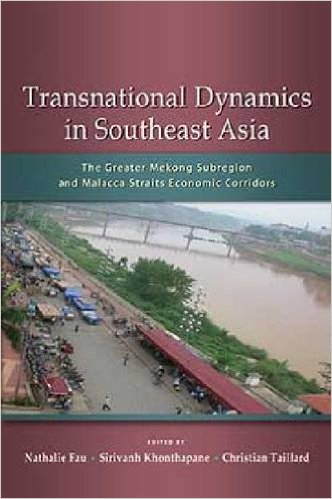
Since the 1990s, regional organizations of the United Nations and international financial institutions have adopted a new dynamic of transnational integration, within the framework of the regionalization process of globalization. In place of the growth triangles of the 1970s, a strategy based on transnational economic corridors has changed the case of regionalization.
Thanks to the initiative of the Asian Development Bank, Southeast Asia provides two of the most advanced examples of such a process in East Asia with, on the one hand, the Greater Mekong Subregion, structured by continental corridors, and on the other, the Malacca Straits, combining maritime and land corridors. This book compares, after two decades, the effects of these developing networks on transnational integration in both subregions.
After presenting the general issue of economic corridors, the work deals with the characteristics and structures peculiar to these two regions, followed by by a study of national strategies mobilizing actors at different levels of state organization. There follows a study of the emergence of new urban nodes on corridors at land and sea borders, and the impact of these corridors on the local societies. This approach makes it possible to compare the effects of transnational integration processes on the spatial and urban organization of the two subregions and on the increasing diversity of the stakeholders involved.
Contents
Preface
Sirivanh Khonthapane and Christian Taillard
PART I
Transnational integration processes in Southeast Asia
1. Definitions and Problematics of Transnational Dynamics
Nathalie Fau
2. The Continental Grid of Economic Corridors in the Greater Mekong Subregion Towards Transnational Integration
Christian Taillard
3. Maritime Corridors, Port System and Spatial Organization in the Malacca Straits
Nathalie Fau
4. Comparing Corridor Development in the Greater Mekong Subregion and the Indonesia-Malaysia-Thailand
Ruth Banomyong
PART II
National policies related to regional integration
5. The Participation of Yunnan Province in the GMS : Chinese Strategies and Impacts on Border Cities
Sébastien Colin
6. Vietnam, an Opening under Control, Lao Cai on the Kunming-Haiphong Economic Corridor
Marie Mellac
7. Integration of Greater Mekong Subregion Corridors within Lao Planning, on National and Regional Scales : A New Challenge
Bounthavy Sisouphanthong
8. Shan State in Myanmar’s Problematic Nation-building and Regional Integration : Conflict and Development
Ella Vignat
9. Sumatra Transnational Prospect beyond Indonesian Integration
Muriel Charras
10. Dry Ports Policy and the Economic Integration Process on the Western Corridor of Peninsular Malaysia
Nazery Khalid
PART III
New Nodes of Economic Corridors : Urban Pairs and Twin Border Cities
11. Twin Cities and Urban Pairs, A New Level in Urban Hierarchies Structuring Transnational Corridors ? A Case Study of the Pekanbaru-Dumai Urban Pair
Manuelle Franck
12. The Re-emergence of Ipoh City : Toward a New Urban Pair with Kuala Lumpur
Amel Farhat
13. Danok-Bukit Kaya Hitam, Twin Border Towns on the Thailand-Malaysia’s Border
Abdul Rahim Anuar, Muszafarshah Mohd Mustafa and Amel Farhat
14. Mukdahan and Savannakhet, Internationalization Process of Twin Mekong Border Cities on the East-West Economic Corridor
Elsa-Xuan Lainé
15. Private Commitment : Marital Alliance in the Establishment of Business Networks at Hekou-Lao Cai, Twin Sino-Vietnamese Border Cities
Caroline Grillot
PART IV
Impacts of Economic Corridors on Laotian Border Societies
16. There is More to Road : Modernity, Memory and Economics Corridors in Huong Hoa-Sepon Lao-Vietnamese Border Area
Vatthana Pholsena
17. Population’s Mobility in Northern Laotian Transborder Areas
Vanina Bouté
18. Chinese Networks, Economic and Territorial Redefinitions in Northern Lao PDR
Danielle Tan
CONCLUSION :
Comparing the Transnational Spatial Dynamics and Stakeholders
19. Corridors and Cities : Connectivity or Integration Process in Southeast Asia ?
Christian Taillard
20. Supranational, National and Local Stakeholders in the Transnational Integration Process in Southeast Asia
Nathalie Fau
Index
